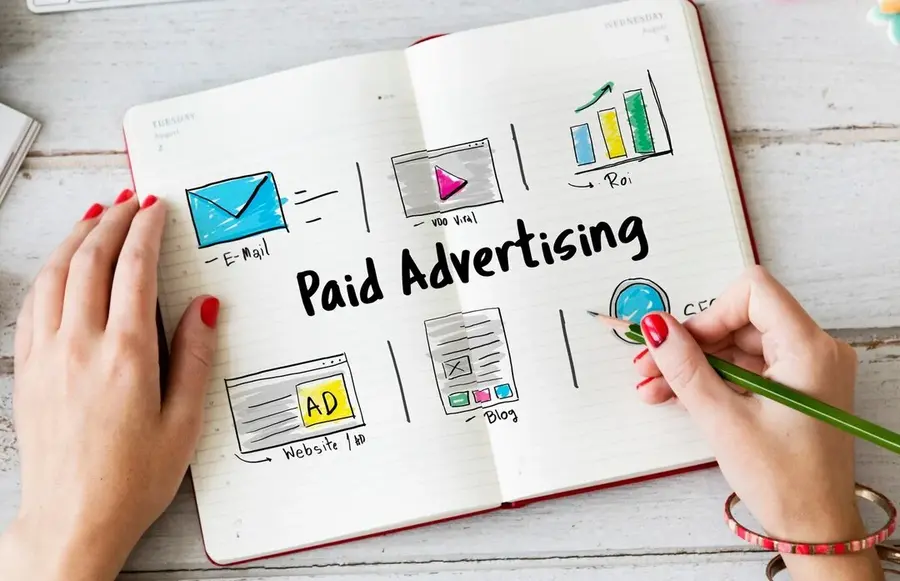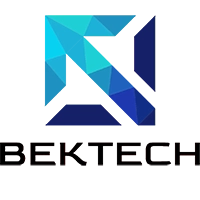Table of Contents
Navigating the Evolving Landscape of Pay-Per-Click Advertising and PPC management
Paid-per-click (PPC) advertising continues to be a fundamental component in the dynamic world of digital marketing, serving as a catalyst for generating leads, increasing conversions, and directing targeted traffic. Still, companies attempting to balance numerous marketing initiatives may find the manual management of multiple campaigns across disparate platforms to be laborious and time-consuming. PPC management has become an art and science at this juncture.
Table of Contents
- 1Navigating the Evolving Landscape of Pay-Per-Click Advertising and PPC management
- 2The Art and Science of PPC Management
- 3PPC in Digital Marketing for Optimal Growth
- 4What is involved in day-to-day PPC management?
- 5The Ultimate Toolkit for Always-On PPC Automation: 8 Tools You Need Now!
- 6Artificial intelligence automation to the rescue: boost your PPC effectiveness
- 7PPC Management: An Analysis from the Year 2024
- 8A Roadmap for PPC Management Success in 2024 and Beyond

The Art and Science of PPC Management
A combination of technological prowess and human expertise is required for effective PPC management. Composing effective marketing copy and developing landing pages that achieve high conversion rates are all components of the art. Energizing campaigns and establishing a connection with target customers requires a creative spark.
On the other hand, the scientific community prioritizes automation tools and data-driven insights. Technological advancements enable precise budget allocation, bid optimization, and campaign performance analysis. By utilizing automation to its full potential, one can optimize return on ad spend (ROAS), streamline workflows, and gain significant time.
PPC in Digital Marketing for Optimal Growth
To truly thrive, businesses need to strategically target their ideal customers and maximize every marketing dollar. PPC management is about precision and data-driven insights. Leveraging the latest trends and techniques is crucial for staying ahead:
By staying abreast of trends, mastering techniques, and constantly optimizing your campaigns, you can unlock PPC’s true potential and fuel explosive growth for your business.
What is involved in day-to-day PPC management?
Based on the campaign’s objectives and budget, the daily responsibilities of a PPC manager may differ. Nevertheless, the following are some frequent affairs:
Investigation and Choice of Keywords: determining which keywords are pertinent to your business and which searchers employ to locate similar products or services.
Ad copywriting is the process of creating targeted and persuasive advertisements that encourage users to click.
Ad group and keyword optimization, budget and bid establishment, and logical campaign structure establishment.
Optimization of landing pages to ensure they provide a seamless user experience and are consistent with the content of your advertisements.
Analyzing campaign data, identifying areas requiring improvement, and providing stakeholders with performance monitoring and reporting outcomes.
Managing each element manually can be a daunting task, particularly when dealing with extensive campaigns, despite the critical nature of these tasks. Automation provides an optimal combination of efficiency and control, thereby rescuing the situation.
The Ultimate Toolkit for Always-On PPC Automation: 8 Tools You Need Now!
Inspiring PPC management and automation tools that are poised to fundamentally transform campaign management will be available in 2024. Consider the following eight essential tools:
One effective strategy for optimizing conversions while adhering to a budget is to employ Google Ads Smart Bidding, which leverages machine learning models to automate bid adjustments in real time using data.
AI Bidding Powerhouse: Analyze sophisticated bidding strategies beyond Google’s native options by utilizing advanced AI platforms such as Optmyzr or Acquisio, which offer more profound insights.
In the era of keyword research, leverage tools such as Ahrefs or SEMrush to identify long-tail keywords, uncover hidden opportunities, and maintain a competitive edge.

Landing Page, Dynamic Attain a flawless user experience and increase conversions by optimizing your landing pages for particular keywords and user intent using dynamic tools such as Unbounce or Instapage.
One effective approach to automating budget allocation across campaigns and platforms and guaranteeing an efficient distribution of advertising expenditures is to utilize budget management tools such as Adthena or WordStream.
Mastery Machine Across Multiple Platforms: Using unified dashboards and automation features provided by platforms such as Kenshoo or MarinOne, oversee campaigns across multiple platforms (Google Ads, Bing Ads, Facebook Ads, etc.).
Optimization and Reporting Robo-Assistant: Utilize platforms such as AdClarity or SpyFu to generate comprehensive reports and automate repetitive optimization tasks, thereby conserving valuable time for the purpose of strategic analysis and judgment.
Ad copy enhancement through the utilization of AI-driven tools such as Phrasecraft or Wordtune to generate variants, test various iterations, and customize the message to increase engagement is the specialty of the creative copy concierge.
It is important to note that these tools are not intended to substitute for your specific expertise. On the contrary, perceive them as augmentations of your team, which allow you to allocate your attention to more sophisticated strategic planning and innovative decision-making while mechanizing mundane duties.
Artificial intelligence automation to the rescue: boost your PPC effectiveness
PPC management has taken a substantial step forward in terms of campaign efficiency and optimization with the incorporation of AI. Utilizing tools powered by AI enables one to:
AI algorithms can more precisely predict user behavior by analyzing vast amounts of data; this allows you to target the appropriate audience with the appropriate message at the appropriate time, thereby increasing conversion rates.
AI is capable of promptly adjusting bids in response to fluctuations in user behavior and market trends, thereby optimizing conversions and reach while adhering to budgetary limitations.
AI has the capability to delve into data sources that extend beyond conventional platforms, thereby detecting latent opportunities such as emerging trends and novel keywords that would elude human intervention.
You can allocate additional time towards strategic thinking, strategy development, and creative content creation by implementing automation for repetitive tasks.

PPC Management: An Analysis from the Year 2024
Twenty-four of these technologies, evolving trends, and intensifying competition will interact in a manner that is notably distinctive for PPC management in 2024. Several crucial viewpoints warrant contemplation:
Embracing Contextual Targeting
Adopting a privacy-first approach in advertising has become more difficult in light of the implementation of stricter data privacy regulations such as the CCPA and GDPR. In order to effectively engage your intended audience, this requires a transition to contextual targeting, which capitalizes on pertinent content and user intent.
Attributing the True Impact
In today’s intricate user journeys, understanding the individual impact of each touchpoint (search, social media, display ads) is crucial for effective PPC management. Leveraging attribution models that account for multiple touches empowers you to measure campaign performance by tracking user interactions across platforms, ultimately optimizing your PPC strategy for maximum impact.
Voice Search Optimization
The necessity to optimize campaigns for voice search has become increasingly apparent due to the increasing prevalence of voice assistants such as Siri and Alexa. To effectively engage this pivotal audience segment, your attention should be directed toward conversational keywords, natural language queries, and mobile-first experiences.
Dynamic Ads & Landing Pages
The increasing expectation of personalized experiences among consumers has elevated the significance of dynamic ad copy and landing pages. In order to generate customized advertising experiences for individual users, tools such as Google’s Dynamic Search Ads and Dynamic Remarketing Ads utilize the content of your website.
Anticipate progress in domains such as self-optimizing campaigns, automated performance reporting, and AI-powered content generation as automation tools perpetuate their evolutionary trajectory. Nevertheless, it is crucial to bear in mind that human comprehension continues to be indispensable when it comes to establishing campaign objectives, analyzing data, and devising strategic choices.
Measuring & Reporting
Measuring and Reporting: Their Significance Robust measurement and reporting are imperative in the face of extensive campaign structures and diverse platforms. In order to monitor critical performance indicators (KPIs), pinpoint opportunities for enhancement, and convince stakeholders of the worth of PPC management endeavors, employ data visualization tools and interactive dashboards.
The imperative for ongoing education and adjustment is underscored by the perpetual evolution of the digital marketing universe. Participate in industry events and communities, remain informed of the most recent trends, and investigate new tools and technologies in order to maintain a competitive edge.
A Roadmap for PPC Management Success in 2024 and Beyond
You can confidently navigate the ever-changing landscape of pay-per-click (PPC) management in 2024 and attain optimal outcomes for your campaigns by adopting these viewpoints and leveraging the associated tools and technologies. It is essential to maintain a harmonious equilibrium between automation and human expertise, capitalizing on technological advancements to optimize processes and maximize expansion opportunities.
As a result of swift technological advancements and shifting consumer preferences, the PPC management environment in 2024 is exceedingly dynamic and intricate. A combination of ingenuity and logical aptitude is necessary to successfully navigate the realm of pay-per-click advertising, as discussed in this blog post. This experience emphasized the significant importance of automation and AI in optimizing previously labor-intensive tasks, enabling marketers to allocate their efforts toward strategic and innovative pursuits that strongly resonate with their intended audiences.
Combining Automation and AI with Strategic Thinking for Winning PPC Campaigns
Devoted to optimizing all aspects of pay-per-click (PPC) campaigns—including ad copywriting, keyword research, and performance analysis—we investigated an all-encompassing toolkit comprised of cutting-edge automation and AI technologies. In the pursuit of greater return on assets (ROAS) and improved interaction with prospective customers, these tools serve as a strategic ally in addition to enhancing efficiency.
With an expanding focus on contextual targeting, voice search optimization, and scalable personalization, the future of PPC management, as described, is positioned at the crossroads of innovation and privacy. Utilizing the capabilities of automation while preserving the human perceptiveness and ingenuity that form the foundation of effective campaigns was underscored in the blog post.
Regarding the future, adopting a well-rounded strategy is crucial for success in the PPC industry of 2024. To streamline operations and extract insights from data, marketers must employ cutting-edge technologies and tools. Nevertheless, ethical considerations, initiative, and strategic thinking continue to be indispensable human components. In order to maintain a competitive edge, it is critical to engage in ongoing education and adjustment. This enables you to develop genuine connections with your audience through PPC campaigns that are not only viable and efficient but also resonate on a human level.
This blog post provides marketers with a comprehensive guide and guiding light for navigating the complexities of PPC management in an ever-changing digital landscape. You can ensure the success and expansion of your pay-per-click (PPC) endeavors beyond 2024 by wholeheartedly adopting the discussed tools, strategies, and perspectives.
Regarding PPC management accounts, which tools do you employ to optimize your time and work?
Automation and management tools are crucial for optimizing the time and effectiveness of PPC accounts. Efficient operations can be greatly improved through the use of automation platforms such as Optmyzr or Kenshoo for bid management and optimization, Google Ads Editor for bulk edits and PPC campaign management, SEMrush or Ahrefs for exhaustive keyword research and competitive analysis, and OPN. Furthermore, time is saved and reporting processes are streamlined through the utilization of scheduling and reporting tools such as Google Data Studio or Supermetrics.
When should a PPC analyst utilize bid optimization tools?
To optimize bids in real-time in response to campaign performance data, it is advisable for PPC analysts to utilize bid optimization tools that integrate AI and machine learning. Multiple automated bid strategies, each optimized for a distinct objective, are provided by Google Ads Smart Bidding. Additional sophisticated platforms, such as MarinOne and Acquisio, offer bid optimization capabilities that are capable of optimizing returns on investment (ROI) across a range of pay-per-click (PPC) campaigns.
How do I update PPC checkpoint mechanisms?
Ensure that your platforms or software are operating the most recent versions prior to updating checkpoint tools for PPC. Typically, this can be accomplished through the functionality's official website or support channels for update instructions or by enabling automatic updates via the tool's settings. Concerning update procedures for particular checkpoint tools, it is advisable to refer to the user manual or contact customer service.
PPC specialists can generate ad creatives with the assistance of which SEMrush tool?
PPC specialists will find the SEMrush Ad Builder tool to be the most useful of the numerous ad creative preparation tools provided by SEMrush. By conducting competitive research, it enables the creation of persuasive advertisement texts. You can create optimized ad creatives that stand out in the crowded PPC landscape by analyzing the ad copies, keywords, and calls-to-action of your competitors.
Which tool is used to manage PPC keywords?
Prominent tools utilized for PPC keyword research include Moz Keyword Explorer, Google Keyword Planner, SEMrush, and Ahrefs. Understanding search volumes and levels of competition, as well as locating pertinent keywords, are both fundamentally supported by Google Keyword Planner. Beyond competitor keyword research, keyword gap analysis, and long-tail keyword discovery, SEMrush and Ahrefs provide significantly more sophisticated functionalities that render them indispensable tools for developing comprehensive pay-per-click (PPC) keyword strategies.
